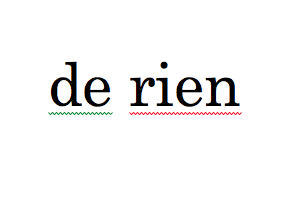I read something recently about the need to teach kids – girls especially? – to say “thank you” more often, instead of brushing aside compliments. The article resonated because I’ve had to teach myself how to accept praise and I know it doesn’t come naturally to some people.
Beyond “thank you,” though, there’s “you’re welcome,” and I believe that phrase is in even direr straits. When I thank people in stores and restaurants, what I hear most often in reply is “no problem,” or the Aussie-ish “no worries.”
My observation isn’t necessarily a judgment. Just because I learned a certain kind of manners as a child doesn’t mean it is the way to behave or that etiquette can’t evolve, but it’s still a perplexing situation.
Where I’ve noticed the absence of “you’re welcome” the most is in news broadcasts. At the end of individual stories, anchors will say something like, “Thank you, Bob, for your report,” and almost always the reporter will say “thank you” right back. Hosts of shows, when interviewing guests, will usually end by thanking the guest: “Thank you, Dr. Bender, for your analysis.” And what does Dr. Bender say? “Thank you.”
What’s the psychology behind the battling “thank you’s”? Do people think that to acknowledge thanks with “you’re welcome” is somehow demeaning?
The phenomenon also has a geographic component, based on my research. I’ve spent a lot of time out of the United States and watched CNN or BBC international newscasts as well as French-language programs, and news reporters and interview subjects almost always answer “thank you” with “you’re welcome.”
I would like to understand this.
